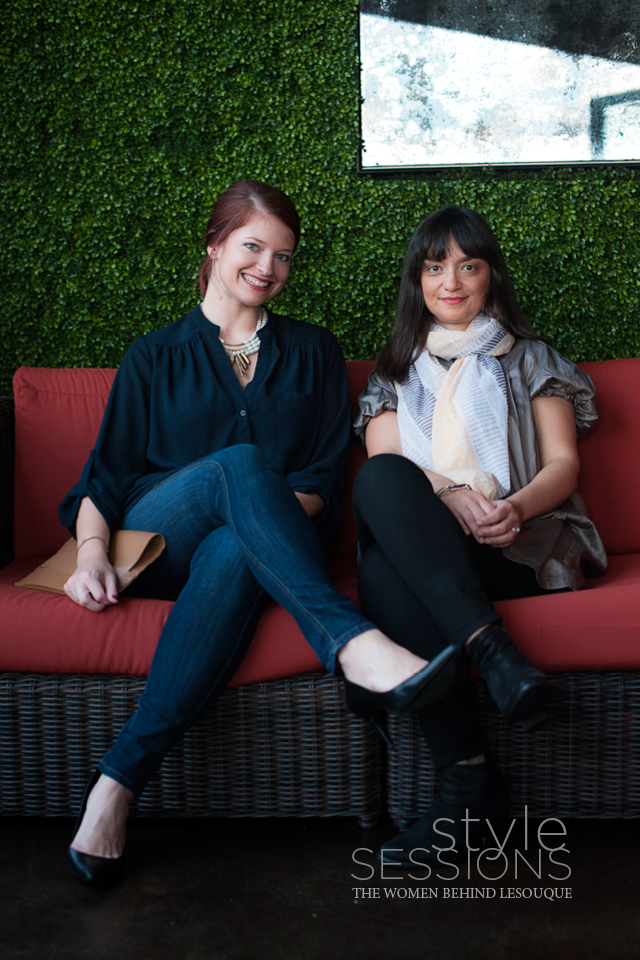
Beautiful, unique, quality-made, and above all socially conscious – the goods that lifestyle brand Lesouque has carefully sourced represent an awareness that shopping can truly make a positive impact.
Lesouque founder Gokben Yamandag and co-founder Penelope Fisher launched their online store of these ethical goods this past summer, introducing up-and-coming designers to consumers around the globe. As with most retailers by this time of the year, they are promoting the start of the holiday shopping season but in quite a different way. This year, they are encouraging us to “Break up with Black Friday.”
“Think about the madness of Black Friday where you will probably buy things you might not need. The holidays are about family. Breaking up with Black Friday is saying, ‘stop and take a breather,’” explains Penelope, while also pointing out how in the end it helps you enjoy the holiday season.
[jump]
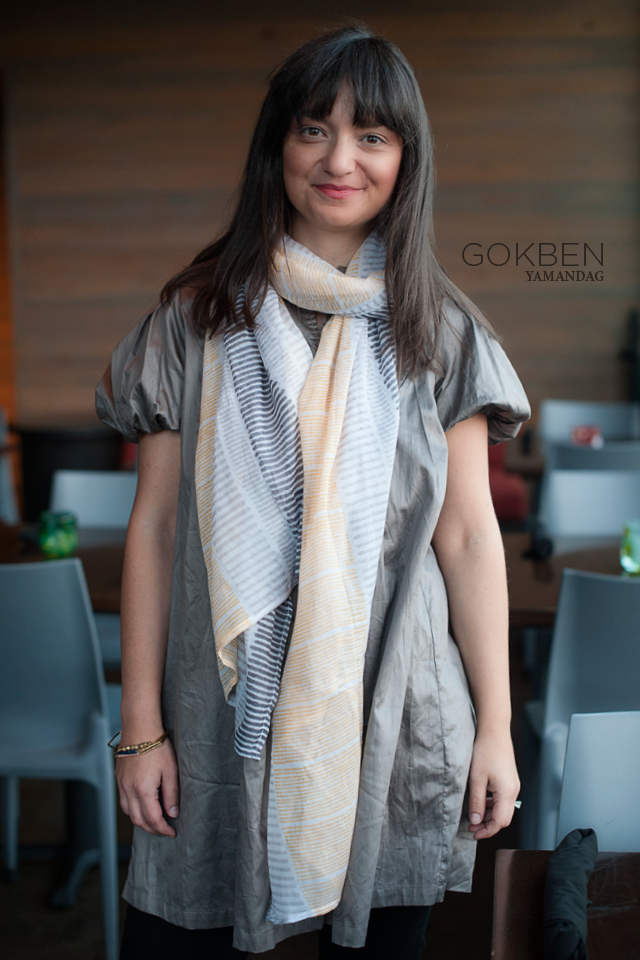
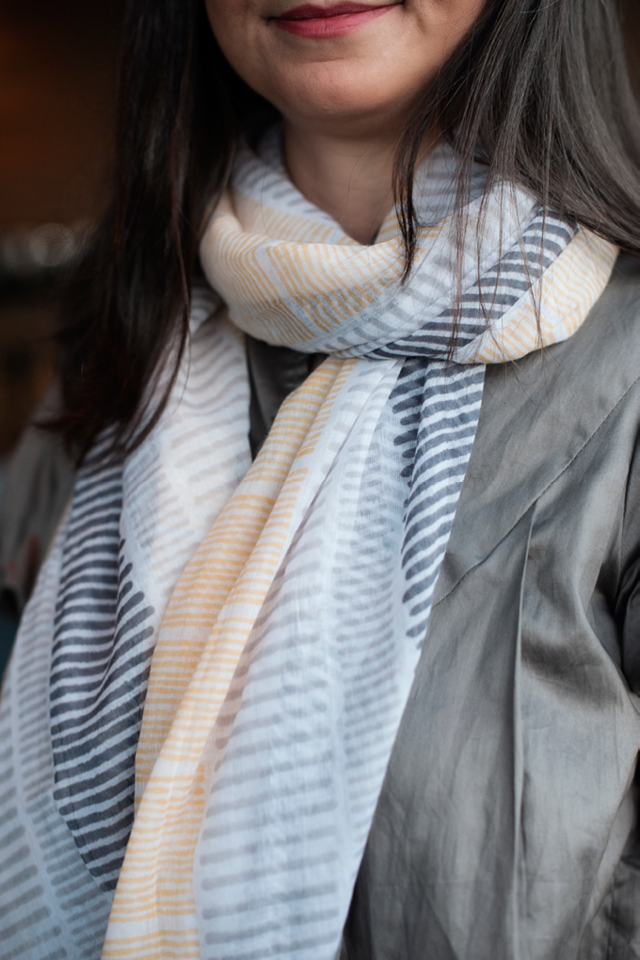
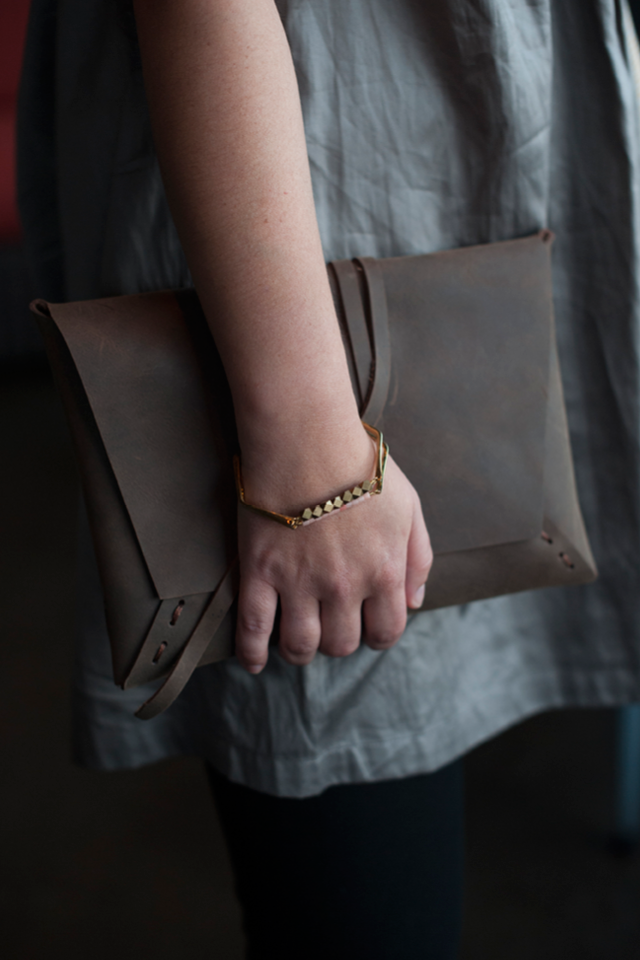
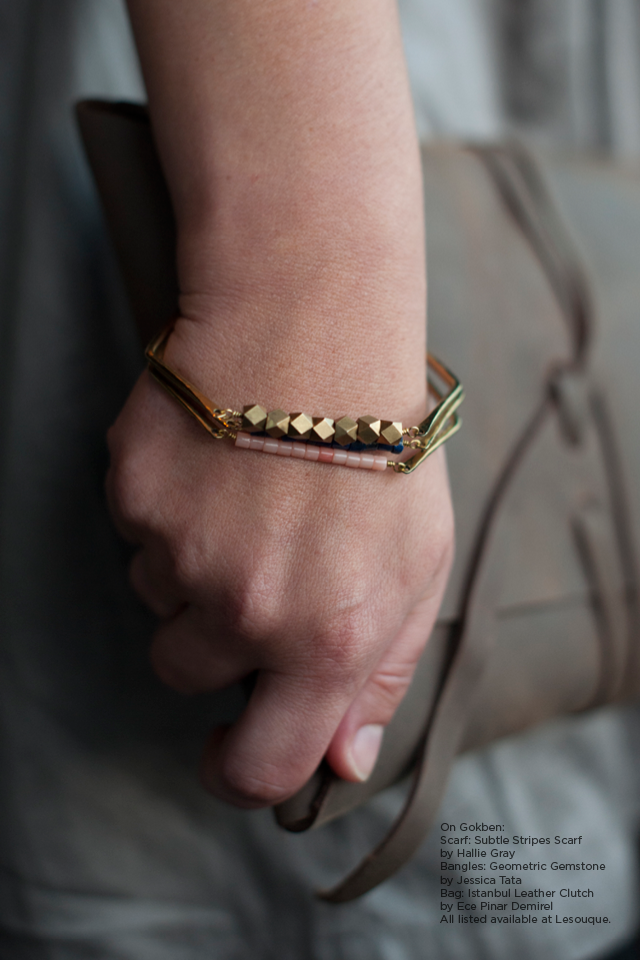
This mini campaign extends from their main goal to educate consumers that there are hidden costs of the items they buy and asks shoppers earnestly to “Think before you buy.” They also explain that the true cost of fashion does come at a cost, which usually ends up being at the cost of people making the item. Gokben herself has witnessed firsthand how the high demand for inexpensive and mass-produced goods can impact the well-being of these people. Working as a textile engineer over 10 years ago in Turkey, Gokben saw the harsh conditions in apparel factories that affected her deeply.
“I finally decided about a year ago that I wanted to change consumers’ minds and educate them about the manufacturing of clothes and home goods, so they are more informed about their decision to buy. I wanted to build something to help sell ethical items,” says Gokben.
Penelope came on board soon after Gokben made her decision to move forward with her idea. Hearing Gokben’s stories about the dark side of the industry, Penelope became more passionate about the educational component of the business. Though there is the effort to expose the dark side of the industry, Lesouque hopes to bring a bit of light to fashion by helping the public find products and designers they can feel good about supporting.
“The fun of it is helping market small and up-and-coming designers, some with no other place to sell like designers from Istanbul. In January, we took a trip to New York to meet many people from all over. California. Pennsylvania. We build connections and relationships and have become friends with most of them. Everyone works for the same goal,” says Gokben.
“We focus on the designers and the makers, those who treat their employees fairly. Beautiful items as you can see. Items I would wear. They are all things we love,” says Penelope.
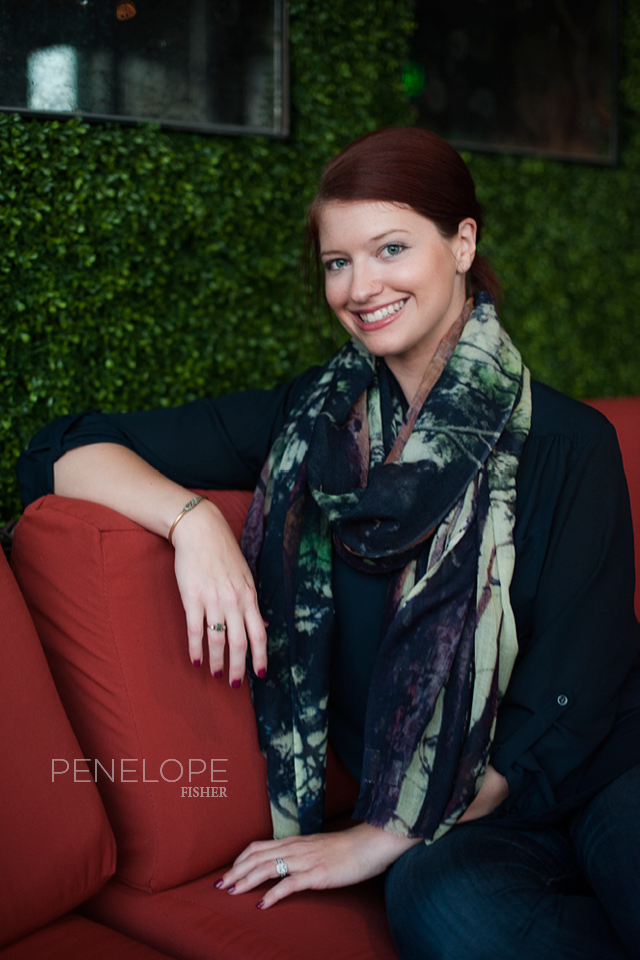
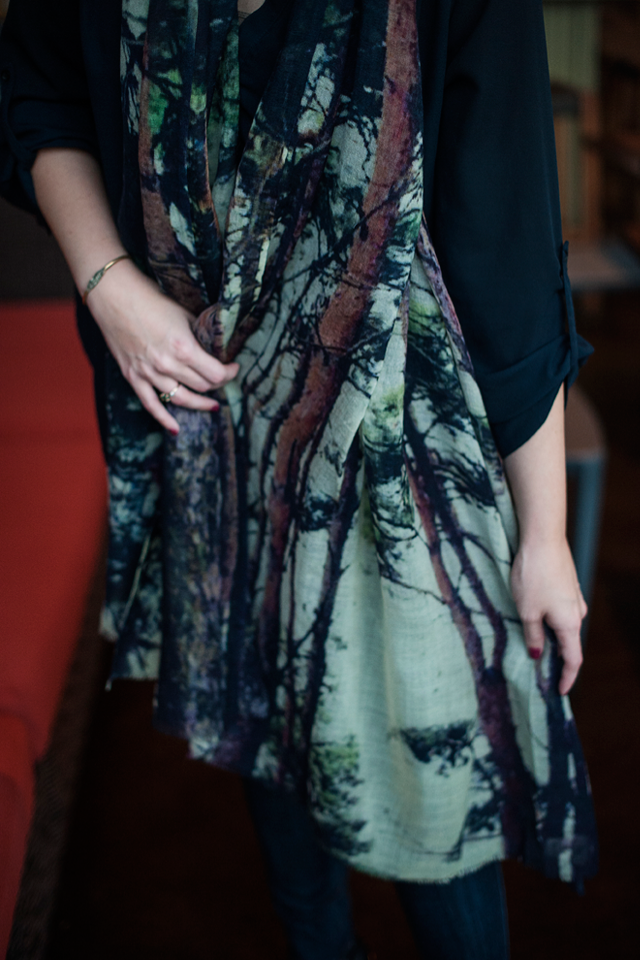
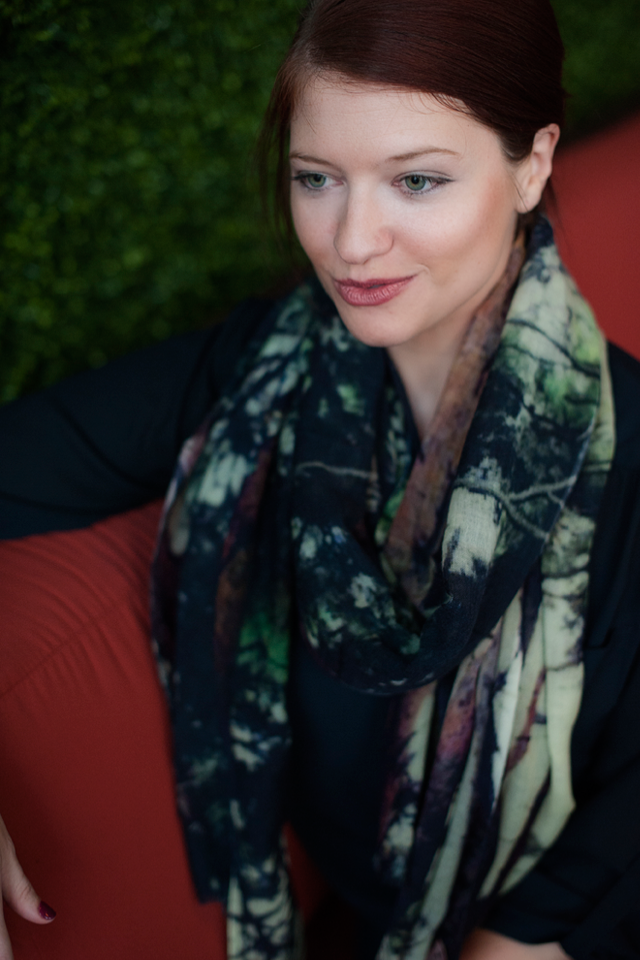
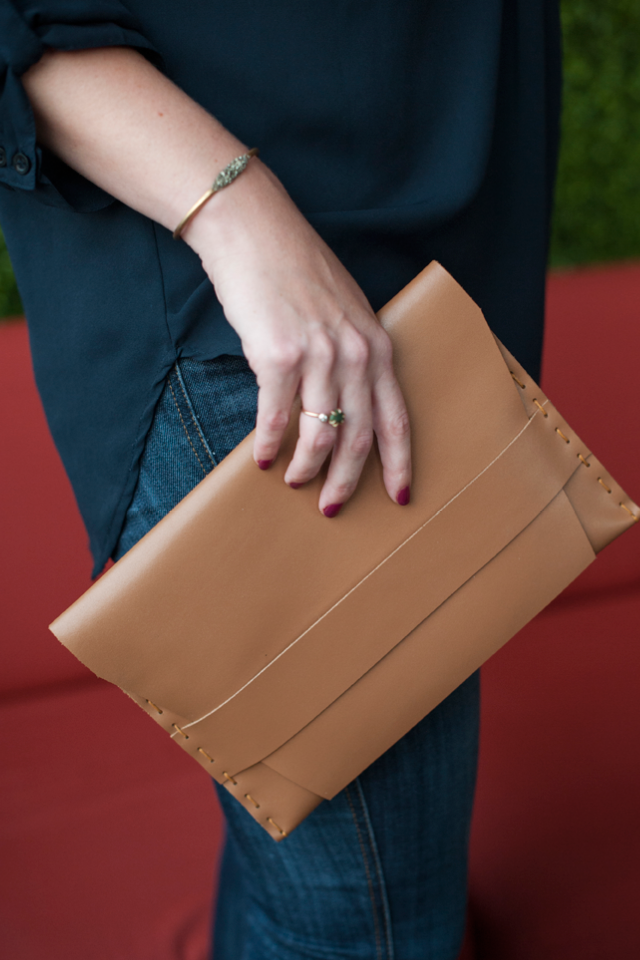
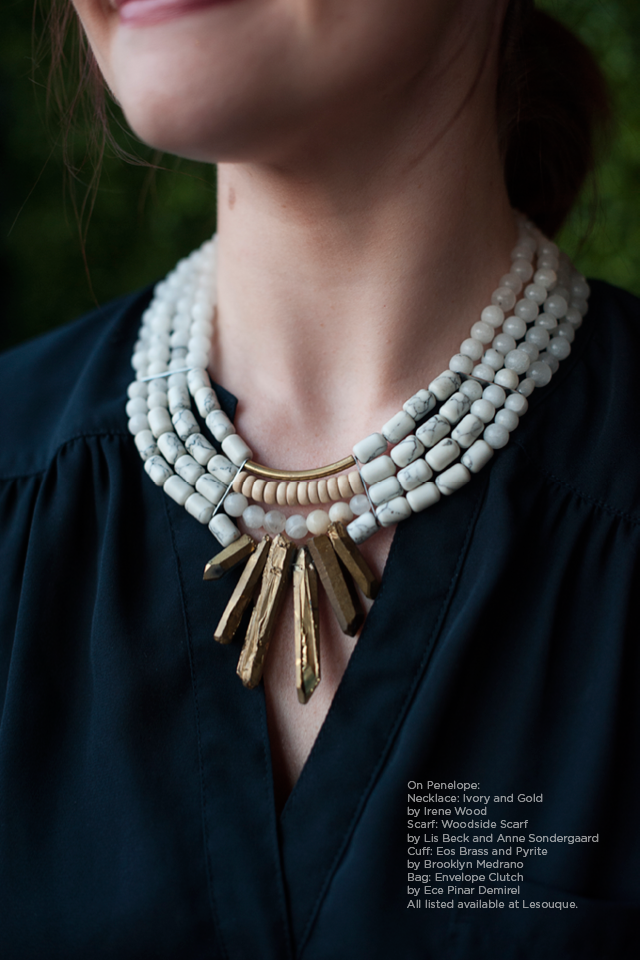
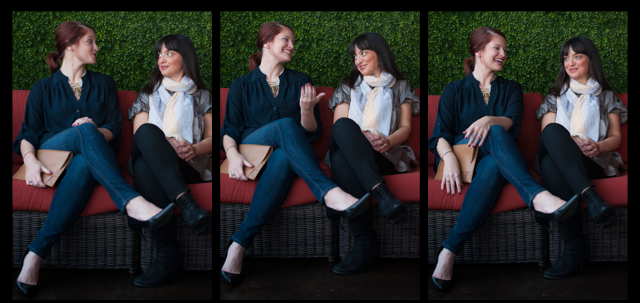
Outfit Details
On Gokben:
Scarf: Subtle Stripes Scarf
by Hallie Gray
Bangles: Geometric Gemstone
by Jessica Tata
Bag: Istanbul Leather Clutch
by Ece Pinar Demirel
On Penelope:
Necklace: Ivory and Gold
by Irene Wood
Scarf: Woodside Scarf
by Lis Beck and Anne Sondergaard
Cuff: Eos Brass and Pyrite
by Brooklyn Medrano
Bag: Envelope Clutch
by Ece Pinar Demirel
All listed available at Lesouque.
Photographed at Terrace at the River Inn, Harbor Town Memphis.
///
Upcoming Event
Pop up shop at Miss Cordelia’s Fall Festival
November 14, 11am to 3pm
///
Here are a few astounding stats about the fashion industry compiled by Lesouque to help you “Think before you buy.”
- 170 million children are engaged in child labour, with many making textiles and garments to satisfy the demand of consumers in Europe, the US, and beyond. (The International Labour Organization)
- In Bangladesh, 85% of 4 million garment workers are women making $68 per/month – the lowest manufacturing wages in the world. This falls far short of the $104 monthly living wage that unions are asking for, according to the Australian Fashion Report 2015.
- Fashion is one of the most polluting industries in the world, second only to oil in terms of its environmental impact. 25% of chemicals produced worldwide are used for textiles and the industry is often noted as the number 2 polluter of clean water – after agriculture.
- It takes 2720 liters of water to make a t-shirt. That’s how much we normally drink over a 3 year period.
- The average American family takes home 1,500 plastic bags a year – less than 3% of them are ever recycled. A single plastic bag can take up 500 years to degrade.
- The average American throws away 70 lbs. of clothing and other textiles every single year. Only 15% of all textiles are recycled, leaving 85% in the landfills, equaling 21 billion pounds of post-consumer textile waste per year.